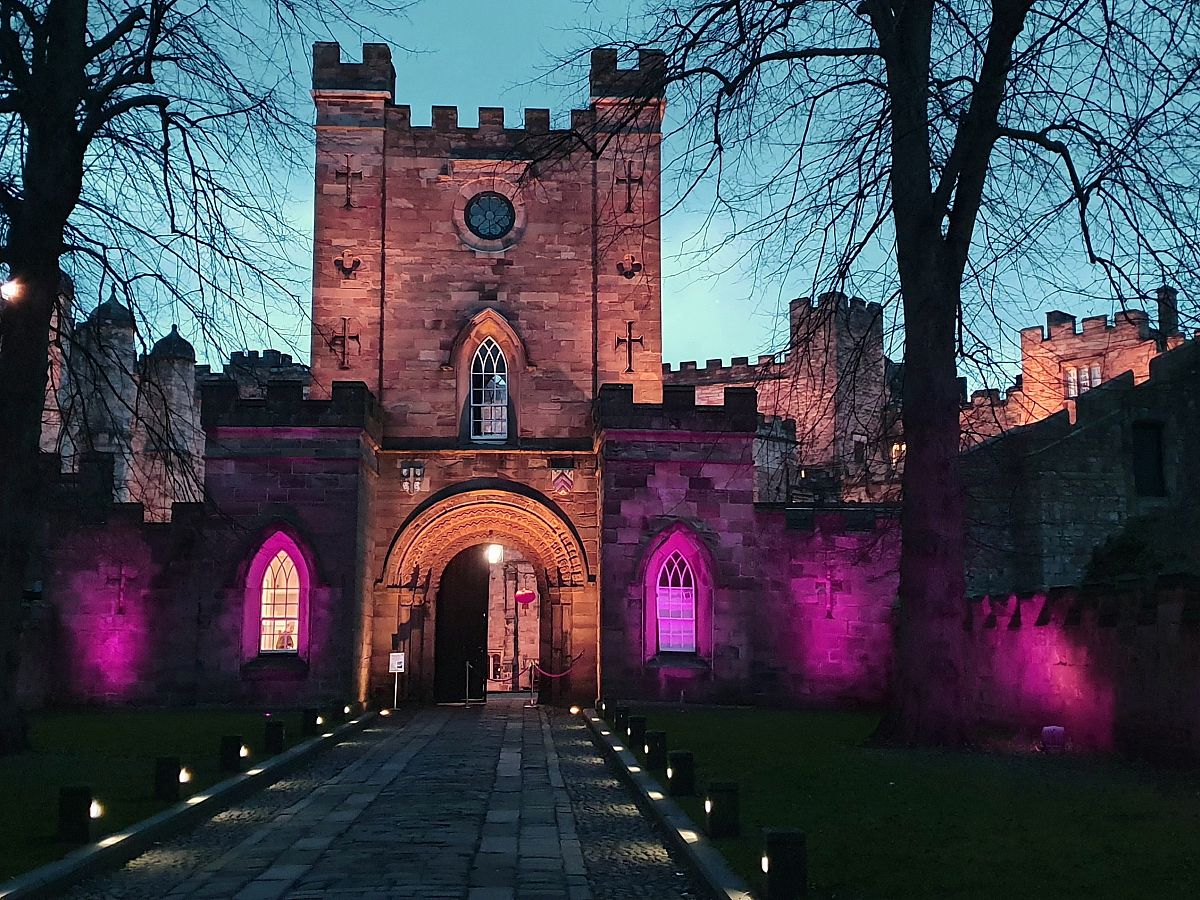Holocaust Memorial Day took place on 27 January and was marked across Durham.
This annual day of remembrance is for those murdered in the Holocaust under Nazi rule, and in the genocides of Cambodia, Rwanda, Bosnia and Darfur.

Durham Castle lit purple to commemorate Holocaust Memorial Day (credit: Zoe Osborn).
This year’s theme, designated by the Holocaust Memorial Day Trust, was Ordinary People – with a focus on those who perpetrated genocide, bystanders, and those who were persecuted.
We held several commemorative events from 23 to 27 January, led by Stephenson College, the DU Jewish Society, University College and the Chaplaincy.
Stephenson College welcomed Martin Bandel from the ’45 Aid Society, a charitable organisation founded by a group of child Holocaust survivors who were brought to Windermere in the Lake District after the end of World War II. Known as ‘The Boys’, the group of 700 (which also included 204 girls) intended the Society to be a way of giving back to the community that had welcomed them. It also supports survivors and their families.
Martin is a second-generation Holocaust survivor who, like other children of ‘The Boys’, keeps their testimonies alive and brings them to the next generation. Martin gave a talk to attendees before a simple candle-lighting ceremony with a minute’s silence.
As well as Martin’s talk, there was a Chapel Service at University College, a DU Jewish Society Friday Night Dinner, and the live stream of the Holocaust Educational Trust’s annual webcast was shown in Howlands Hall.
As in previous years, we lit the Castle in purple on 27 January to mark this day of remembrance and show our solidarity.
Durham County Council also held a commemorative event on 27 January at the Gala Theatre and Cinema, with Professor Marek Szablewski (Physics) sharing the story of his family's life in occupied Poland during the Second World War.
Another part of the University’s commemorative programme, in conjunction with Durham County Council and the Chaplaincy Network, is an exhibition and talk on Porrajmos, the genocide against Romani people during the Holocaust. The exhibition will feature the largely unknown story of the persecution and deaths of Roma and Sinti Gypsies. Visit the EDI webpages for more information.
Find out more:
